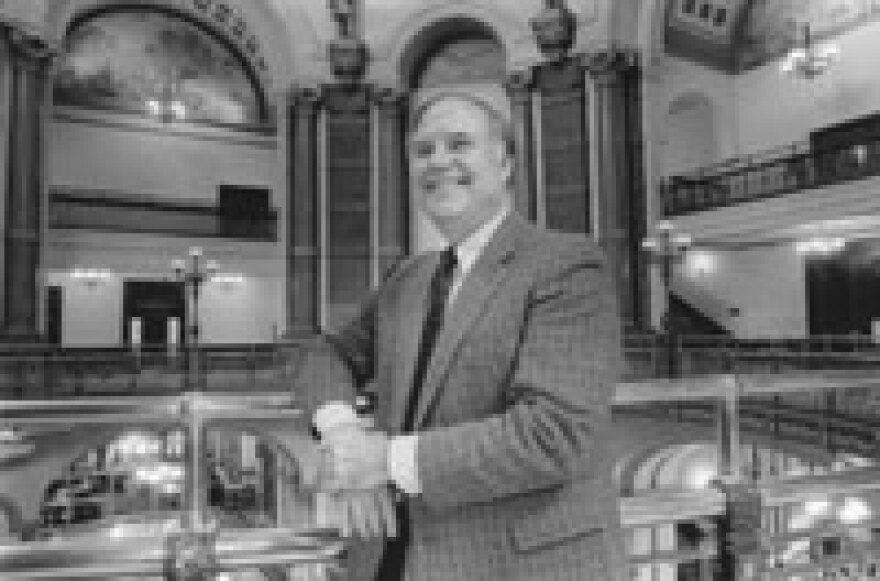It's springtime in Illinois, and one can see signs of the season blossoming across the state: daffodils, tulips, forsythia, school referenda.
School referenda?
Yep. Local school officials pleading with local taxpayers for desperately needed dollars has become as much an annual springtime ritual as green beer for St. Paddy's Day and high hopes for the Chicago Cubs.
Fortunately for Illinois youngsters, school boards generally fare better at the ballot box than do the Cubbies at the hands of their National League rivals. Voters in recent years have said "yes" to roughly two out of every three requests.
But the sheer number of such ballot propositions gives one reason to pause. According to the State Board of Elections, in this spring's consolidated elections, there were 93 proposals relating to school finances before voters in scores of communities across the state, ranging from such suburbs as Barrington, Naperville and New Lenox, to such towns as Rock-ford and Oregon in the north, Decatur and Shelbyville in central Illinois, and Cahokia and Edwardsville in the south. Fifty asked permission to borrow money to build new classrooms or repair existing ones, while the other 43 asked for higher tax rates to meet operating expenses.
In the primary a year ago, there were 100 similar referenda, according to the board. But school finance questions are not limited to spring; last November's general election had 55. Thus, in the last 13 months, voters faced school referenda at a ratio of roughly one proposal for every 3.6 districts.
The 248 referenda in 13 months is clear evidence there's something wrong with the way Illinois finances its local schools, education advocates believe.
"The problem isn't static. It gets worse every year," says Heidi Biederman, executive director of the Large Unit District Association, made up of the 54 largest K-12 districts in the state. "And until we address the overreliance on the property tax, we won't be able to resolve it."
The success referenda have enjoyed presents a paradox of sorts. Every time voters approve a school tax rate increase or bond issue, they're voting themselves higher property taxes. Yet study after study has shown that property taxes are by far the most despised form of taxation. They're seen as unfair and inequitable, tied neither to ability to pay nor to consumption, and administered unevenly from one county to the next. Given that sentiment, the fact that most school referenda are approved is a testament to citizens' commitment to education. It's also some measure of the frustration many feel at the state's reluctance to shoulder more of the school funding burden.
In Decatur, for example, voters who approved a 73-cent property tax hike in February - the first such referendum to pass in 45 years - likely found it less odious than the alternative: cutting a quarter of the district's full-time teachers and eliminating all school extracurricular activities. Even with higher taxes, the school board had to slice $7.2 million from its budget, including laying off 140 teachers.
While a tribute to civic-mindedness, every successful referendum also exacerbates what school finance experts see as the underlying problem, the state's heavy reliance on local property taxes to pay for schools.
In fairness, the state has been doing better since 1997, when a reform package was enacted that guaranteed a minimum funding level for each child and hiked a handful of taxes to help pay for it. The year before the reforms, the state share was just 32 percent, while local taxes accounted for 59 percent and federal funds made up the rest. Last year, local taxes provided about 53 percent of public school funding, while the state kicked in 38 percent. Gov. George Ryan's proposed FY 2002 budget would boost spending for elementary and secondary education by some $303 million, ratcheting the state's share up a fraction more. But the state still will be only about three-fourths of the way to the constitutional goal of 51 percent, and struggling school districts will turn again to the voters.
Moreover, the way the lion's share of state aid is divvied up works against many urban districts. The formula is based on the number of kids in a district and its tax base, leading to smaller shares for such districts as Decatur, Springfield and Peoria, which in recent years have seen declining attendance and rising property values - and expenses.
Adding to the financial woe, school districts in Cook, the collar, and more than 30 downstate counties are under tax caps, which limit a district's ability to access all the growth in its tax base. The caps have cost school districts more than $128 million since 1991, according to state Revenue Department calculations.
While the flaws in the current system are widely acknowledged, no one expects a dramatic remedy - such as an income for property tax swap - to emerge this legislative session. Lawmakers aren't likely to approve any increase in the per-pupil funding guarantee above the $4,560 the
governor recommended. Even modest ideas - like letting a school district average its attendance over the last three years to cushion falling enrollment - may not make it into law.
So what would it take to recharge the debate on shifting school finances from local property taxes to state income and sales taxes?
"A crisis," says Springfield Schools Superintendent Bob Hill, whose district faces a $17 million deficit next year. "It would take one of the big school districts to go bankrupt."
To cover the projected deficit, Hill has proposed $5 million in budget cuts and a $ 12 million draw from the working cash fund. A year from now, the board likely will ask voters for a tax increase. It's all part of the springtime ritual.
Charles N. Wheeler III is director of the Public Affairs Reporting program at the University of Illinois at Springfield.






